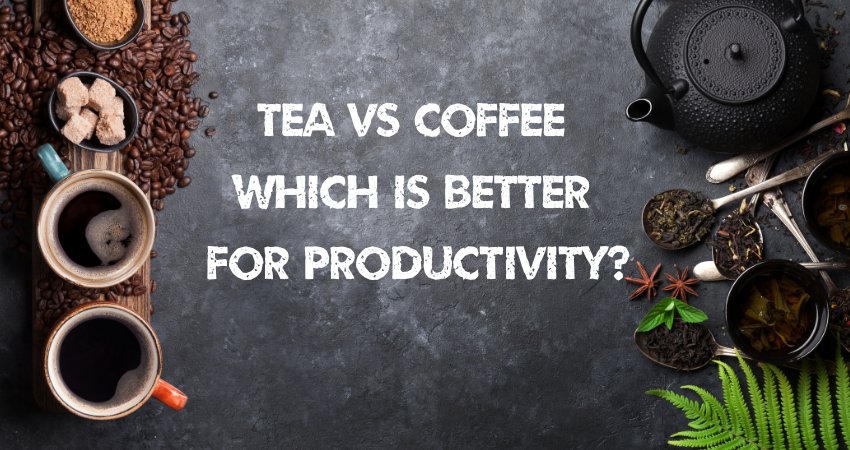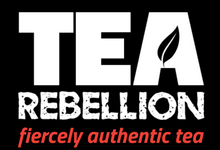
Tea vs. Coffee: Which is Better for Productivity?
In the Quest for Enhance Productivity
In the quest for enhanced productivity, enthusiasts often find themselves at a crossroads between two beloved beverages. With dedicated followings and touted benefits, these drinks have become staples in daily routines. Exploring the depths of science and tradition, we uncover the secrets behind these popular brews. By dissecting elements such as caffeine levels, antioxidants, and cognitive impacts, we aim to shed light on the ultimate productivity elixir. Whether you lean towards a steaming cup of comfort or a revitalizing infusion, understanding the nuances of these concoctions can elevate your daily grind. Join us on a journey through the world of invigorating sips.
Tea vs. Coffee: A Health Comparison
Tea and coffee are two popular beverages enjoyed worldwide, each offering unique health benefits and containing varying levels of caffeine. In this section, we will compare the health benefits of tea and coffee, exploring their differences and potential advantages.
Health Benefits of Tea
- Positive effects on blood pressure
- Helps in maintaining cholesterol levels
- Aids in stress reduction
- Supports mental health
- Enhances productivity
Health Benefits of Coffee
- Associated with fiber intake
- Supports microbiome health
- Reduces the risk of certain diseases like cancer and diabetes
Impact of Caffeine on Productivity
Research studies have shown that both tea and coffee have their own set of advantages when it comes to health. While coffee is associated with benefits like fiber intake, microbiome health, and reducing the risk of certain diseases like cancer and diabetes, tea is known for its positive effects on blood pressure, cholesterol levels, stress reduction, mental health, and productivity.
Interestingly, tea contains enough caffeine to enhance performance without disrupting sleep, making it a good choice for those sensitive to high caffeine levels. On the other hand, coffee may not be suitable for individuals who struggle with caffeine processing or experience negative side effects from excessive caffeine consumption.
For those looking for a balance between caffeine intake and productivity, green tea can be a suitable alternative to coffee. Despite having lower caffeine content, teas like black tea, which contain a mix of caffeine and L-theanine, can provide a more stable energy source and improve alertness.
Ultimately, the choice between tea and coffee depends on individual preferences and tolerance to caffeine, with both beverages offering potential health benefits and productivity enhancements.
Productivity and Caffeine Consumption
Effects of caffeine on focus and productivity
Caffeine is a widely consumed stimulant that can have both positive and negative effects on focus and productivity. When consumed in moderate amounts, caffeine can enhance alertness, concentration, and cognitive performance. It can help individuals stay awake and focused, especially during tasks that require sustained attention. However, excessive caffeine intake can lead to jitteriness, anxiety, and disrupted sleep patterns, ultimately impairing productivity.
Importance of safe caffeine consumption
It is crucial to practice safe caffeine consumption to maximize its benefits on productivity. Setting limits on daily caffeine intake, avoiding consumption close to bedtime, and staying hydrated can help individuals harness the positive effects of caffeine while minimizing potential drawbacks. By being mindful of their caffeine consumption habits, individuals can maintain optimal focus and productivity throughout the day.
Research information:
-
Tea can be a better alternative for individuals who struggle with processing caffeine or experience negative side effects from high caffeine consumption. Despite containing less caffeine than coffee, tea can still provide a stimulating effect that enhances focus and productivity. Additionally, tea is considered healthier for the body compared to coffee.
-
Both coffee and tea can have similar effects on alertness and cognitive performance when consumed in moderate amounts. However, excessive consumption of coffee, especially in high volumes, can lead to increased stress levels. On the other hand, tea can provide a sense of relaxation without inducing apathy, making it beneficial for calming the mind before engaging in productive tasks.
-
Coffee is associated with benefits such as fiber intake, microbiome health, and reduced risk of certain diseases like cancer and diabetes. Tea, on the other hand, is known for its positive effects on blood pressure, cholesterol levels, stress reduction, mental health, and productivity. Both beverages have advantages for heart health and longevity.
The choice between coffee and tea for productivity depends on individual preferences and tolerance to caffeine. While coffee may offer a higher caffeine dose, tea can provide a calming and soothing experience that enhances focus and cognitive function. It is essential for individuals to find the right balance in caffeine consumption to optimize productivity levels throughout the day.
The debate between tea and coffee for productivity is multifaceted, with each beverage offering unique benefits. While coffee has surged in popularity, especially among the younger generation, tea continues to hold a special place in many cultures. The quality and experience of tea are crucial factors, as highlighted by Tea Rebellion's commitment to ensuring a great tea experience for tea lovers in the away from home sector as well as sourcing high-quality teas and supporting fair trade practices. Whether you prefer the boldness of coffee or complexity and spirituality of tea, exploring the world of premium teas can enhance your beverage experience. To delve deeper into the tea vs. Coffee discussion and discover exceptional teas, read our article on Tea vs Coffee in the UK or check out the Levelling Up Coffee House Magazine article.
